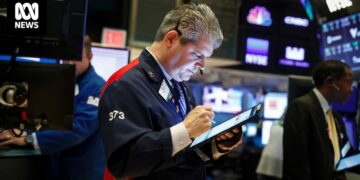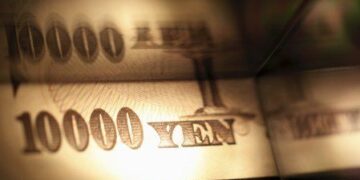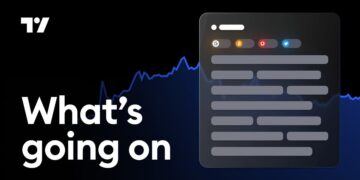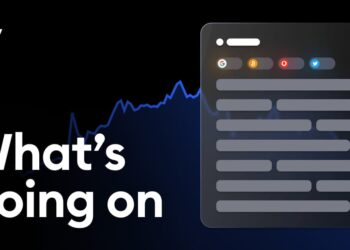The Bank of Japan’s Institute for Monetary and Economic Studies will host a conference Tuesday and Wednesday. With speculation swirling about the timing of the central bank’s next rate hike, market participants will watch closely for signals in Governor Kazuo Ueda’s opening remarks.
Data due Friday is expected to show an uptick in Tokyo inflation following the expiration of energy subsidies. A Quick poll of economists forecast a 3.5% year-over-year increase in core consumer prices for May, up from 3.4% in April. Industrial production, retail sales and the jobless rate for April will also be released Friday.
The Ministry of Finance is set to auction 500 billion yen in 40-year Japanese government bonds on Wednesday and 2.6 trillion yen of 2-year notes on Friday. Investors will monitor the 40-year issuance closely after the May 20 auction of 20-year bonds disappointed and yields on long-dated debt rose sharply.
“Stresses in ultra-long term JGBs provide another warning on what could happen if market participants fixate on fiscal issues,” said Eugene Leow of DBS Group Research, noting that Japan has the worst government debt profile among the G10 economies.
The Bank of Japan’s bond-buying operations Thursday could provide support for long-dated debt. The central bank plans to purchase government bonds with maturities beyond 10 years and up to 25 years, as well as those with maturities of 3-5 and 5-10 years, along with inflation-linked bonds.
SOUTH KOREA
The Bank of Korea is widely expected to lower its policy rate on Thursday as both domestic and global challenges weigh on growth. All 12 economists surveyed by The Wall Street Journal forecast a 25 basis-point cut, which would bring the rate to 2.50% and mark a resumption of the easing cycle.
The BOK is also expected to revise down its 2025 gross domestic product growth outlook.
Global trade tensions and domestic political volatility are eroding business and household confidence, ANZ economist Bansi Madhavani said, citing South Korea’s first-quarter GDP contraction.
“The Bank of Korea unambiguously remains on a rate-cutting cycle,” she said.
Most economists see further easing ahead to support weak growth. ING economists expect the May cut to boost sentiment and activity. However, with tariff uncertainty persisting and signs of renewed household debt growth, they anticipate the BOK will strike a balanced tone in its forward guidance.
Any references to days are in local times.
Write to Jessica Fleetham at [email protected] and Jihye Lee at [email protected]
(END) Dow Jones Newswires
05-25-25 1714ET



















